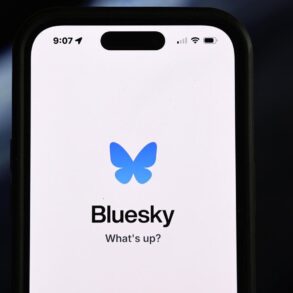The tactics scammers use to get their victims into a “hot state” are helping them reap big dividends as teenagers report being targeted through social media.
Research published by Westpac this year shows about a quarter of 13–17-year-olds have fallen victim to social media scams.
It came after the Australian Competition and Commission (ACCC) said Australians made more than 601,000 scam reports in 2023, which was an increase of 18.5 per cent on the previous year.
Their losses were estimated to total about $2.74 billion.
But with that figure only relating to reported cases, the actual losses could be higher.
ACCC deputy chair Catriona Lowe said social media provided one of the most common ways for scammers to establish contact with victims.
“They’ll be quite versatile in how they do it,” Ms Lowe said.
So many scams
The Westpac research shows young people were most regularly caught in buying and selling scams.
Daniel, 22, says he paid for goods that never arrived. (BTN High: Steve Opie)
Daniel, 22, said that was how he became a victim.
“I was trying to purchase something and the buyer actually didn’t ship the product out to me,” he said.
“He … ended up blocking me and I didn’t end up getting my money back.”
Loading…
Scammers have used all sorts of lies to trick victims into trusting them.
They have set up fake profiles and pretended to be the government, a real business, or celebrities including Elon Musk.
They have also used artificial intelligence to impersonate real people to promote products or easy ways to make money.
Aasya, 18, Lilly, 18 and Saanvi, 18, say they are aware of social media scams. (BTN High: Steve Opie)
Saanvi, 18, said her friend’s Instagram account was hacked and her password changed so she couldn’t access it.
“They were posting stuff about bitcoins on her story,” Saanvi said.
Building pressure
Ms Lowe said these kinds of scammers were master manipulators who lied for a living.
“They know that we don’t make our best decisions when we’re rushing or when we’re nervous so they will try and manufacture a situation that gets us into that hot state,” she said.
She said they might offer a last-minute concert ticket to create a sense of urgency.
They have also tried gaining trust through sympathy by asking for support while a loved one was in hospital, or used fake prizes to excite victims into falling for their trap.
Ms Lowe said victims had also been targeted with fear tactics.
“The other thing that they’ll do is if they start to feel like their victim might be realising it’s a scam, that’s when they’ll try and isolate and use embarrassment to prevent that person from reporting,” she said.
The ACCC has heard of scammers forming relationships with young people in order to extract personal information from them, Ms Lowe said.
She said the scammers then threatened to release that information.
“That is a crime,” Ms Lowe said.
“It’s a serious crime.”
Speak up
Ms Lowe’s top piece of advice to young victims was not to let embarrassment stop them from seeking help.
“Anyone can get caught by these scams, and they do,” she said.
“Adults get caught all the time — teachers, doctors, lawyers.”
She urged victims to try to overcome their embarrassment and at least report the scam online.
Lily, 19, is conscious of scams when using social media. (BTN High: Steve Opie)
“The other thing that we hear from people who have been caught is they actually feel better when they share their story — when they talk to others about it,” she said.
“And very often you’ll find out that the person you’re talking to might have been caught as well.”
Gian, 18, says there are things he looks for when trying to detect a scam. (BTN High: Steve Opie)
Keep watch
Gian, 18, said social media scams could be quite obvious once people realised what they looked like.
“If … the account is really new, or they have no photos or stuff like that,” he said.
“Or … they’re trying to make you pay through their pay ID or something that’s not secure.”
Lily, 19, said she was wary of being tagged in posts by people she didn’t know.
“Then it seems more like it’d be fake,” she said.





